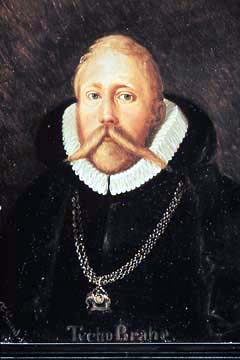 Walls of people formed to watch a funeral procession pass through the streets of Prague on Nov. 4, 1601. A herald carrying a billowing damask flag was followed by 12 imperial guards bearing a coffin covered with black satin. The man inside wore a full suit of armor.
Walls of people formed to watch a funeral procession pass through the streets of Prague on Nov. 4, 1601. A herald carrying a billowing damask flag was followed by 12 imperial guards bearing a coffin covered with black satin. The man inside wore a full suit of armor.Tycho Brahe, the brilliant observer of the stars in the Renaissance, was being carried to his grave. The scholar had systematically measured the sky, paving the way for science in the modern age. In 1573 he became the first person to describe a supernova, the explosion of a star.
His assistant, Johannes Kepler, praised him as a "phoenix" of astronomy. Brahe simply compared himself to the "Messiah."
He was also a bon vivant -- a member of the Danish aristocracy, and master of his own island. A biographer called him an "indestructible, blustering social being with an enormous appetite for food and wine."
So what killed this tycoon of the heavens? According to contemporary reports, while attending a banquet at the emperor's court in Prague, Brahe suddenly felt a strong urge to urinate, but was too polite to excuse himself. Finally, the reports conclude, his bladder became "twisted," blocked up or somehow "torn."
Kepler, who was also a tenant of Brahe's, witnessed the subsequent illness first-hand. Brahe was unable to urinate for 11 days, and he eventually died in a delirious state.
More: Der Spiegel


No comments:
Post a Comment